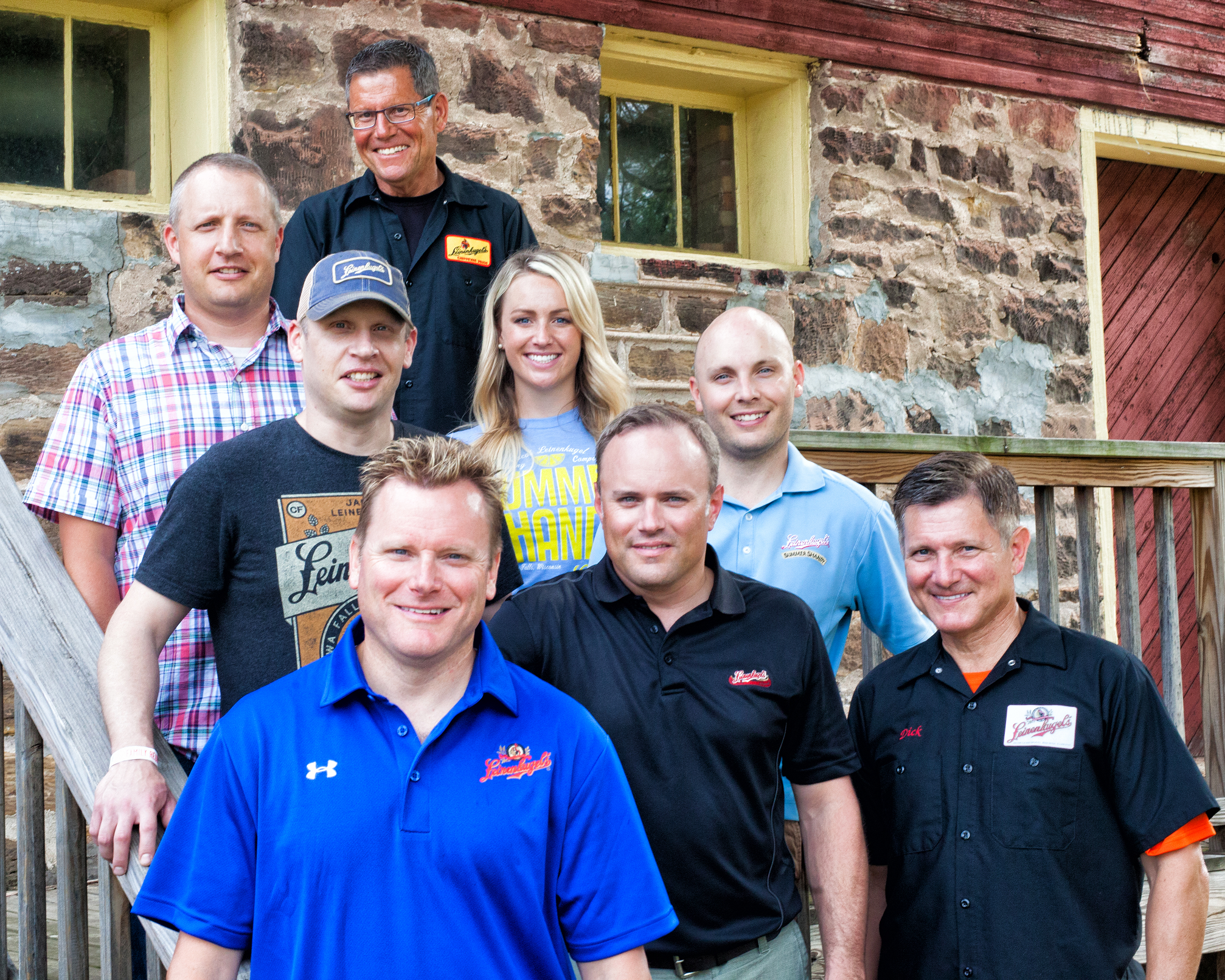“Miller Brewing to buy Leinenkugel’s: Purchase, possible expansion seen as boon to community.”
So screamed the banner headline in the Dec. 2, 1987, edition of the Leader-Telegram, the daily newspaper serving Eau Claire and Chippewa Falls, Wis.
The news set off a torrent of uncertainty and concern among Leinie’s employees, fans of the brand and residents of Chippewa Falls, who worried about the future of a beloved regional institution.
Nonetheless, the deal moved forward, closing the following spring. Thirty years later, the headline has proven prescient.
Miller kept true to its word, making major investments behind the Chippewa Falls brewery and embracing the Leinenkugel family, many of whom remain involved with the company. It brought the sales, marketing and supply chain strength of a national brewer to a small, family-owned Northwoods brewery looking to secure its long-term future yet remain independent in a marketplace fueled by consolidation.
For Miller, the deal also brought a stable of small, scalable craft beers into its portfolio during a time of early craft growth that would pick up in the 1990s and accelerate over the next two decades.
For Leinenkugel’s, it raised the profile of the brewery and its beers, fueling innovation that led to brews such as Honey Weiss, Berry Weiss and Red Lager, and expansion beyond the Northwoods for Leinenkugel’s Original. The tie-up with Miller also paved the way for the brand’s first nationally distributed beer, Summer Shandy, a runaway success that became and continues as the best-selling shandy-style beer in the United States.
The sale also provided long-term certainty and security for the brewery’s leadership, particularly Bill Leinenkugel, who retired from his presidency a year before the acquisition. His sons, Jake and Dick, represent the fifth generation of brewery leaders. Each has since taken turns leading the organization while his son, John, is currently active in the business.
Behind the Beer recently caught up with the brothers for their recollections of the sale and life since. Dick became president of the Jacob Leinenkugel Brewing Co. in 2014, replacing Jake, who retired that year after heading the brewery for 25 years.
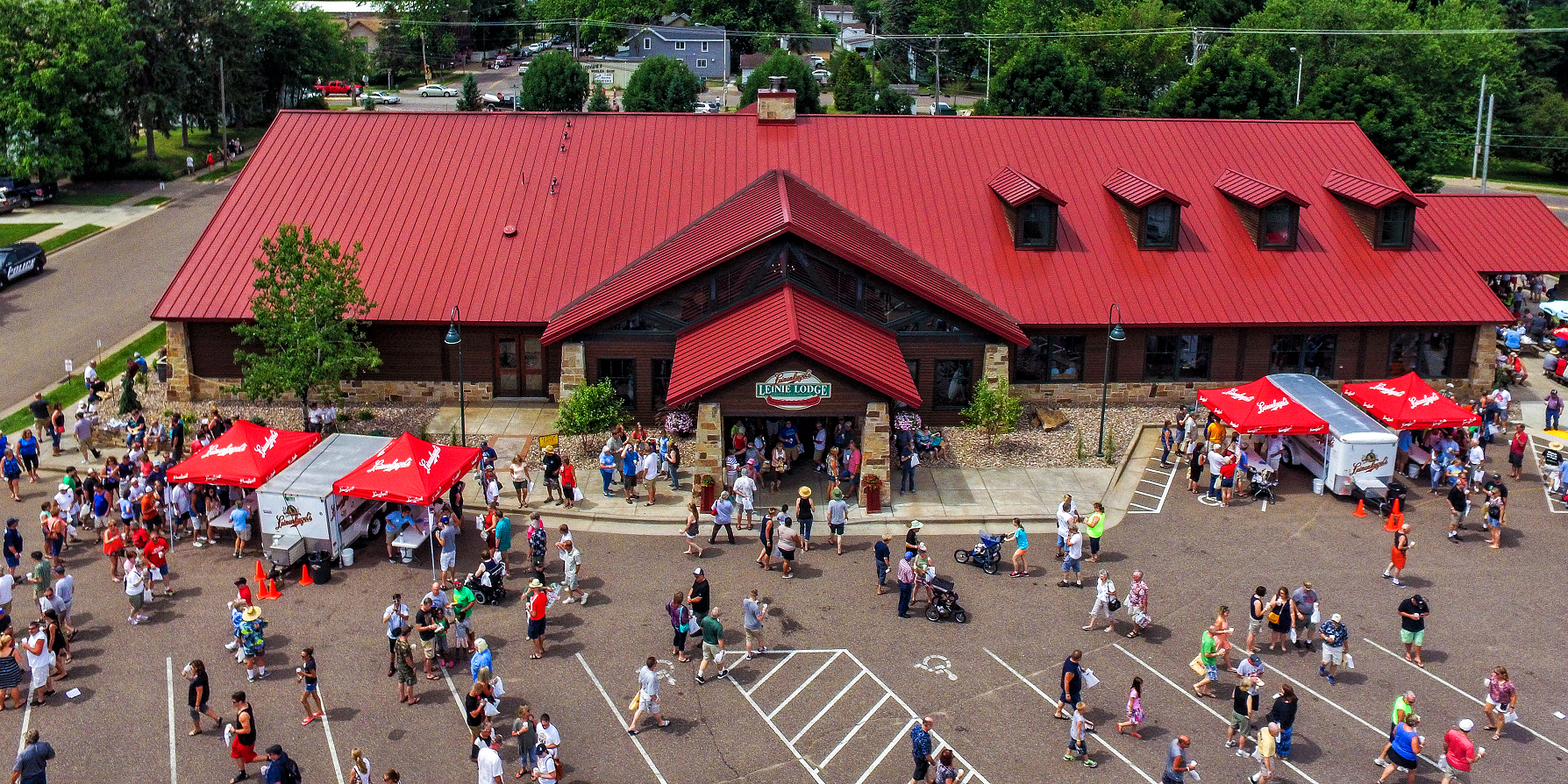
|
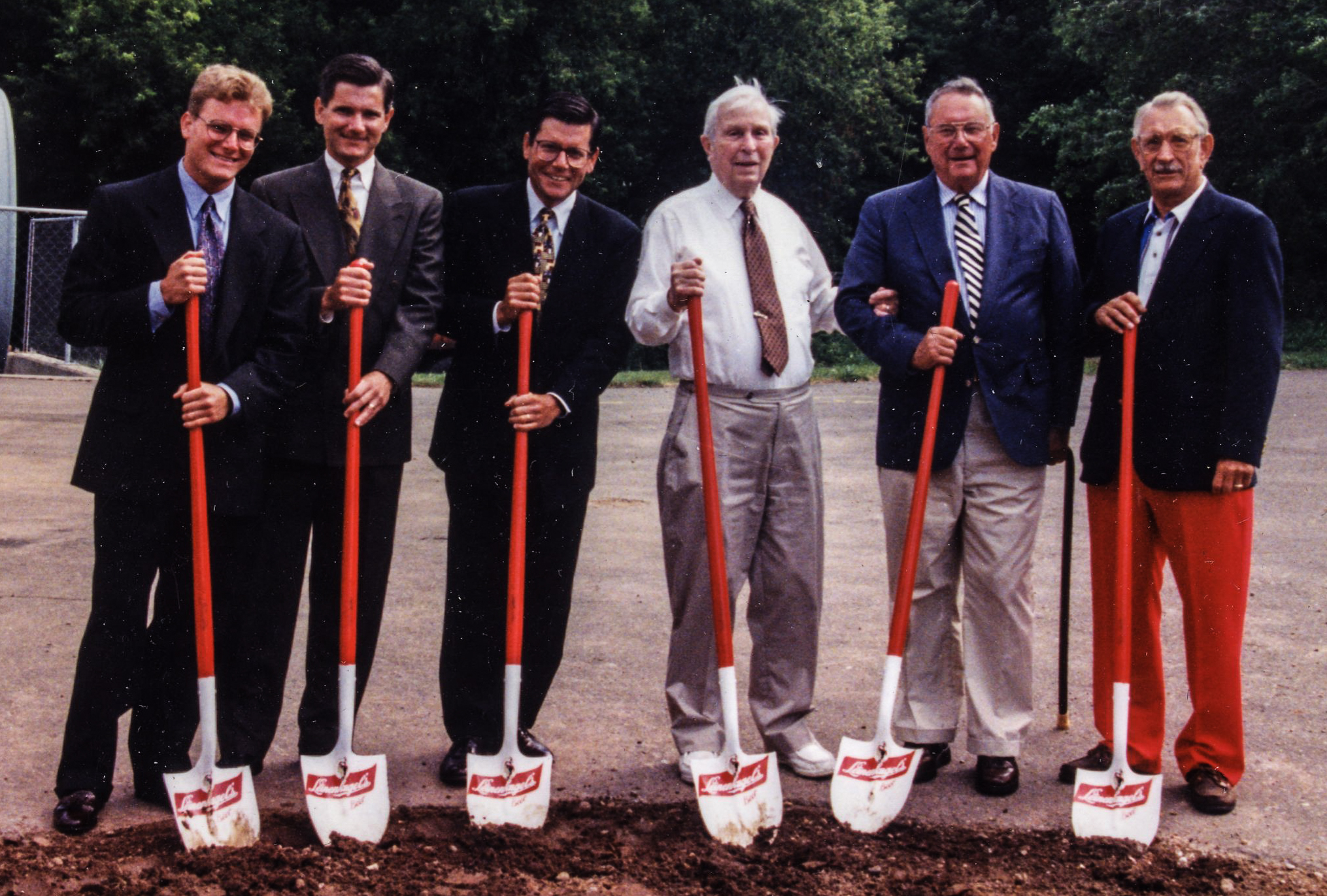
|
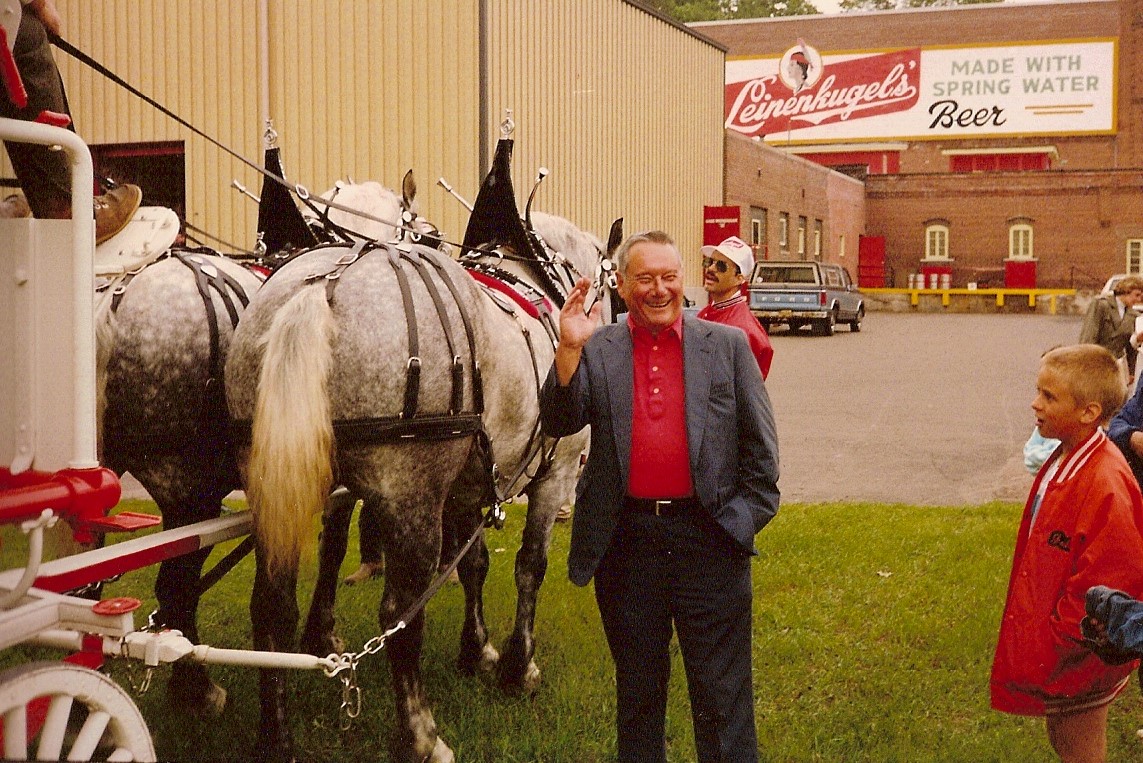
|
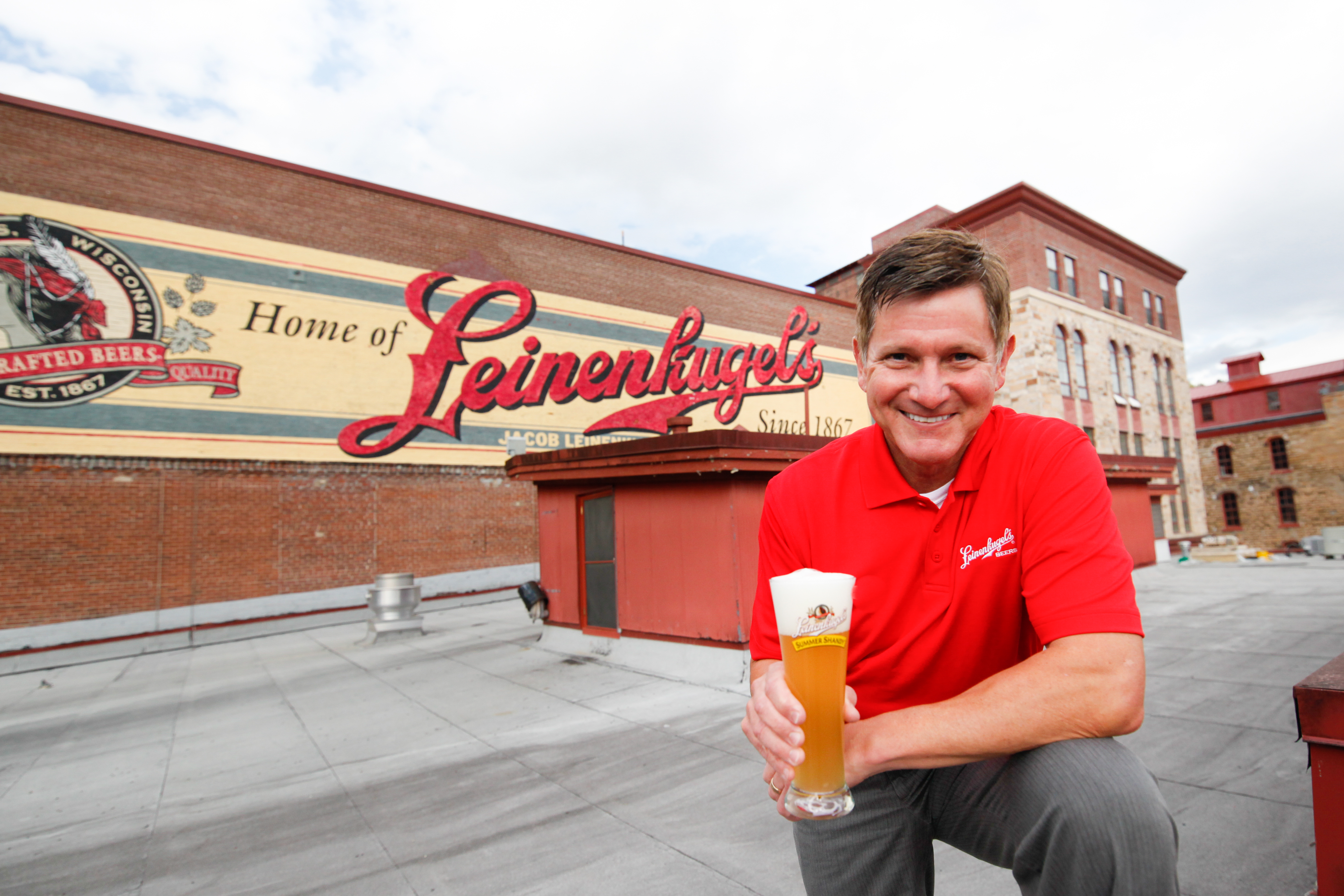
|
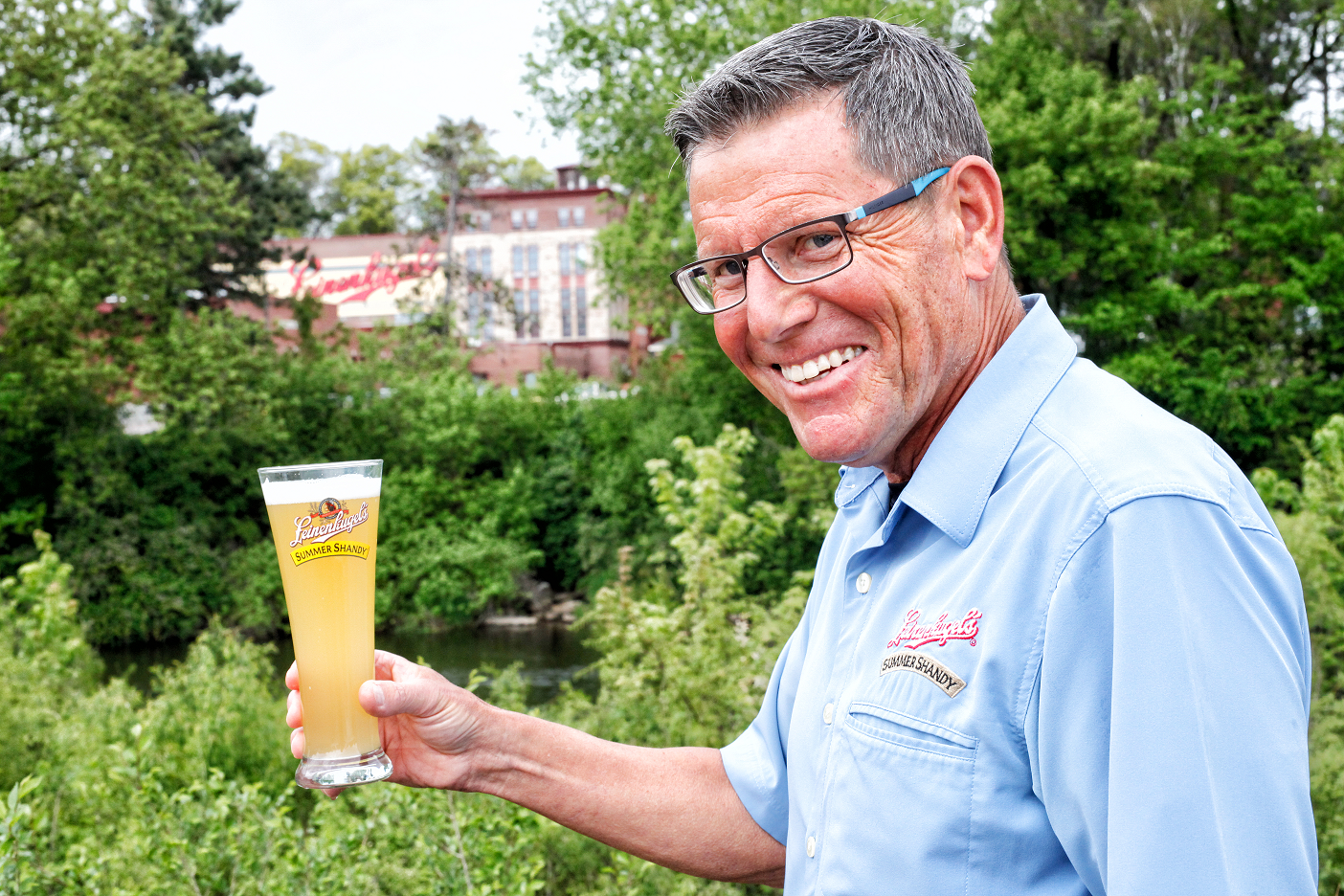
|
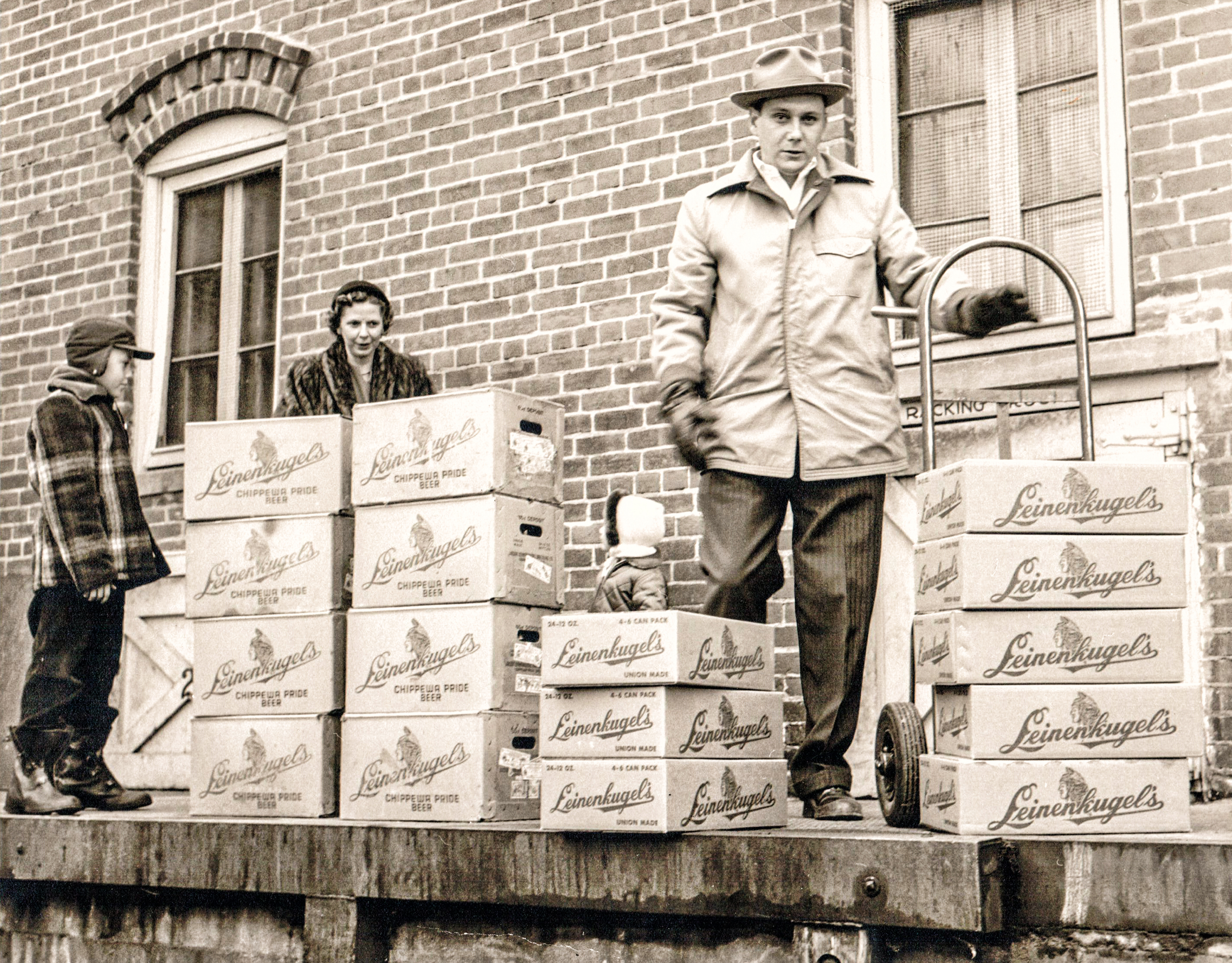
|
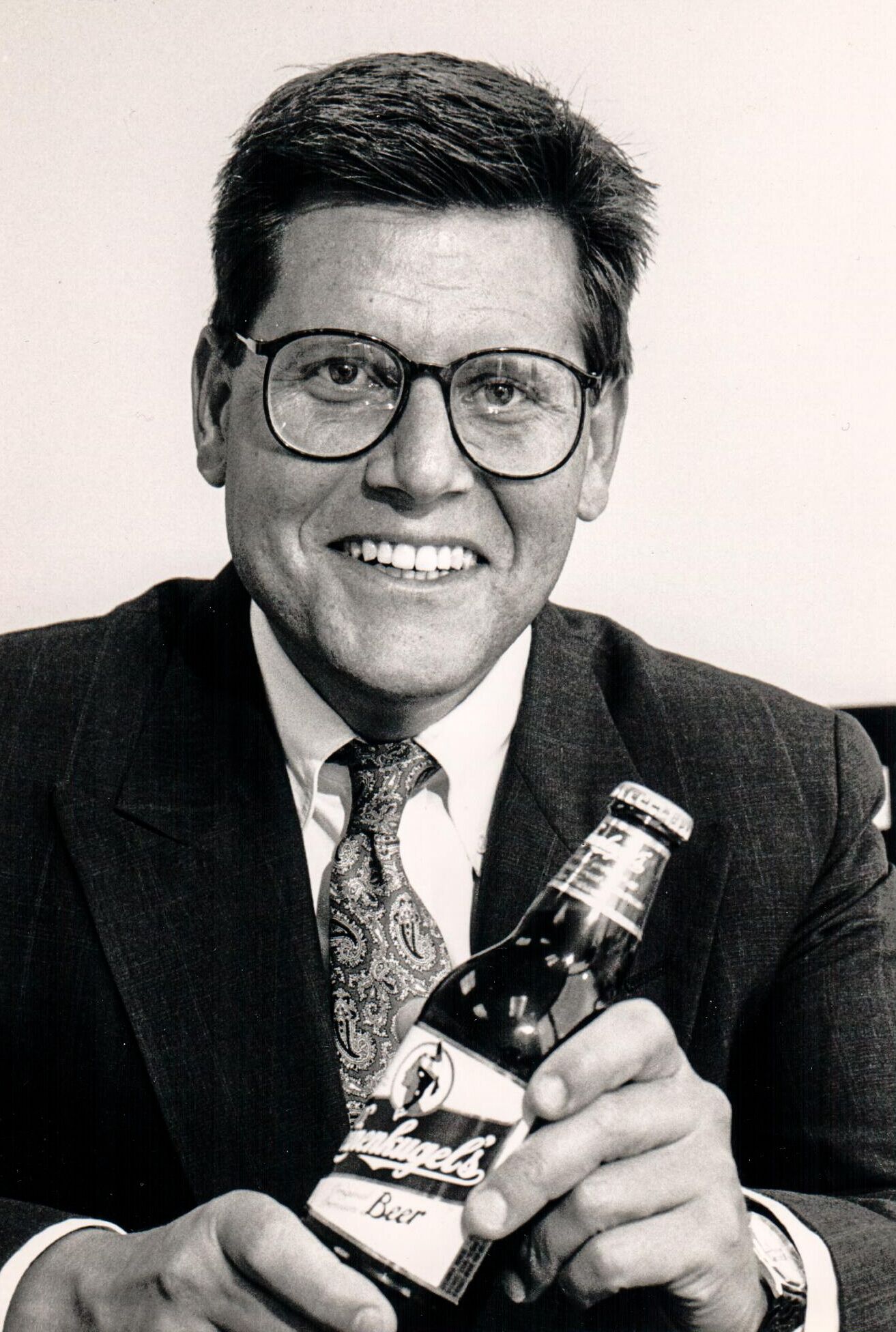
|
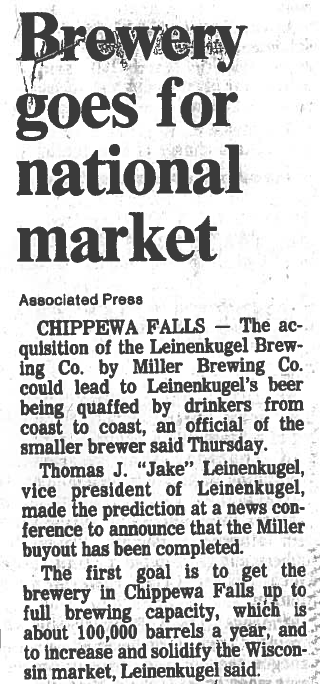
|
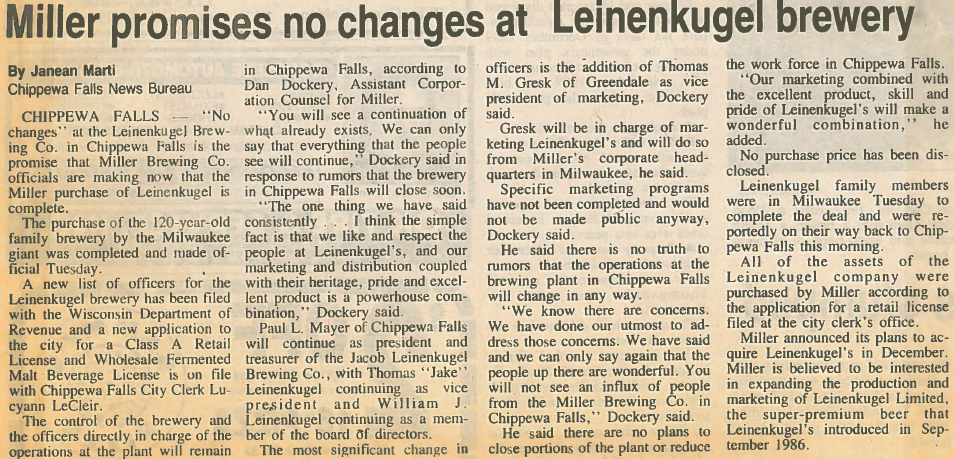
|
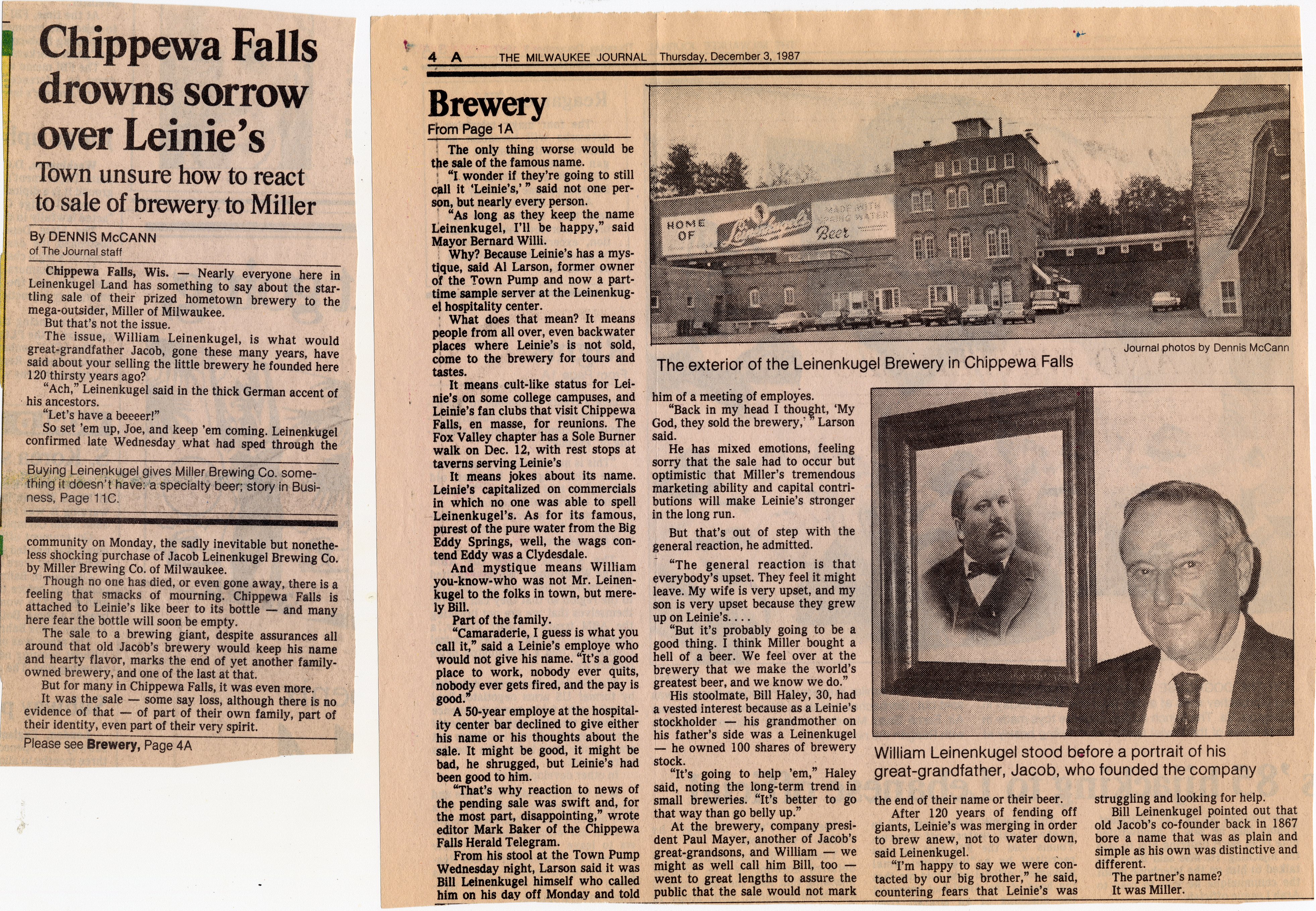
|
There is a famous story where Bill Leinenkugel claimed to not understand the “lawyerese” in the initial joint-marketing venture offer letter from Miller. He took it to the board chairman saying, “I think they want us to buy Miller Brewing Co.!” Is that true?
Dick: “That quote is 100% accurate — it’s our dad being our dad.”
What led up to the sale?
Jake: “The ‘80s were an extension of the ‘70s, where most of the regional breweries were either closed or were closing, and the larger breweries were gaining market share rapidly because of mass distribution.”
How did you react to the news that Miller had made an offer?
Dick: “Dad called me. He asked me what I thought of it — that they had received a letter talking about a joint marketing venture with Miller. I said, ‘I’ll be fine. You should take it seriously. It’s a Wisconsin brewer, well known, and I’ll land on my feet no matter what.’ They had gotten other offers in the past, from a Belgian and a Canadian brewer. But they always felt this was different because Miller was a Wisconsin-based brewer, and the intent was to not close Leinenkugel’s, but to keep the family in charge and grow the business.”
Jake: “I didn’t bat an eye. I had just met with a lot of Miller people. Miller had hosted a small brewer get-together during a Wisconsin Brewers Association meeting, where you get to spend some time with senior leaders like (former Miller President and CEO) Leonard Goldstein. So we knew them. That stimulated all of the board members that their company would be with a state and national brewery they had a relationship with. Then you look at the power of their brand and (the size of the company), and you knew they had the financial wherewithal to do the right thing with the brand.”
How did employees take it?
Jake: “There was shock. I looked at the faces of all of them, and a couple of them said, ‘What the hell are you doing? You are selling your soul to the devil.’ That was a pretty common reaction in the Chippewa Falls community, too. In our core area, people were a lot more on the negative side, (saying) that this was not a smart, good thing for us.”
How long did it take to overcome that?
Dick: “Thirty years. (Laughs.) I say that jokingly, but there is a little truth in that. When you look back at it, the proof was when Jake was made president of the company a year later. At that point, people made a sigh of relief, saying, ‘You know what? This company is living up to their commitment in terms of keeping the family involved.’”
“Then, when we release Leinenkugel’s Red Lager in 1993 and it was an immediate hit, and we have our first expansion of the brewery, adding more tanks. Then a year later we have Honey Weiss, then a few years later we’re putting in a whole new tank farm, then all of the other improvements — a new brewhouse in 2001, the Leinie Lodge in 2003. You look at the investment that has been made in the brewery, in the beer and the beer quality. I don’t think there is any doubt now that Miller and MillerCoors are committed to the Jacob Leinenkugel Brewing Co.”
Buying Leinenkugel’s came at a good time for Miller, too.
Dick: “In many ways, we were a test market for Miller Brewing Co. Dakota, $1,000 Beer, Miller Special Reserve — they had made several attempts to get into the specialty beer market (it wasn’t called ‘craft’ back then). You had Jim Koch, New Albion, Russ Klisch in Milwaukee. There was a whole group in 1988 that was planning to get into this microbrewery segment. Miller was smart enough to realize they should partner with a well-known — albeit very small — regional brewery and see if they can add marketing muscle and make them larger.”
In your time with Miller, ownership of has gone from Philip Morris to SABMiller to a joint venture between SABMiller and Molson Coors to solely Molson Coors. Have those changes become an issue?
Jake: “Each one has had a different philosophy and management team. But in the end they have valued the family, and the family members have been very much involved. The key is face, place, and story. When you have a family that has been involved for 150 years and you put a face, place and story behind it, it’s probably the most powerful thing you can have as a brand and as a company.”
Dick: “That’s what we as the Leinenkugels bring to the business. People can come visit us here in Chippewa Falls. We travel to their markets. We have been used in the advertising. They get to know there are real people behind the beer. Without the place, you become just another beer brand. For our fans who love us, Chippewa Falls is like Mecca. They need to pay homage to where their favorite beer brand is brewed.”
Are there lessons to be learned in this for other craft acquisitions, even today?
Dick: “When Anheuser-Busch bought Goose Island in 2011, I called (Goose Island founder) John Hall to congratulate him. I said, ‘I hope everything works out for you.’ John said, ‘I told those SOBs from St. Louis I just want to be treated as well as the Leinenkugel family was treated by Miller Brewing Co.!’”
How important is seeing a sixth generation lead the brewery?
Dick: “It ties with our strategy: Develop great people. Jake’s children, CJ and Ellie, are both in sales roles; my nephew Tony Bugher, my sister Kate’s youngest boy; Jake’s son, Matt, is our health and safety manager; and his son Kirk is working in the brewery in Chippewa. I put in my goals to provide them with the right experiences and right roles, so that one day they will be ready to lead this company.”
Jake: “It’s absolutely critical. It’s our strength of who we are. Very few can actually make that claim. We should be looking at the seventh and eighth generation. It doesn’t stop with the sixth. It’s important to the community.”
How would your dad feel about all of this?
Jake: “Giddy. Even to his last day, when he took his final sip of Leinenkugel’s Creamy Dark, he was proud of what he did, and what we had done.”
Dick: “All he wanted was for his boys, his sons, to continue the legacy he had built.”

